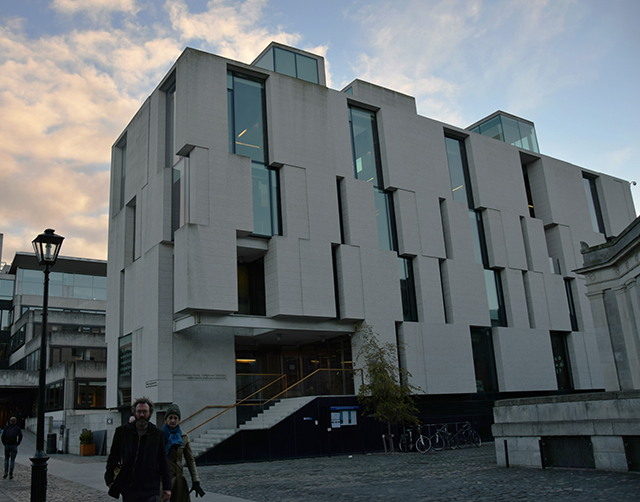The Trinity Long Room Hub is leading a project on “Crises of Democracy through the Prism of Cultural Trauma” in partnership with four other universities and research institutes.
The project examines the rise of populism and authoritarianism as a method of governance, as opposed to democracy. It seeks to develop a framework for the Consortium of Humanities Centres and Institutes to assist governments and societies in responding to breakdowns in democracy.
Director of the Trinity Long Room Hub, Professor Jane Ohlmeyer, is leading the project. According to Ohlmeyer, the project aims to explore the factors which can incite crises of democracy.
“At the crux of this project are the beliefs that crises of democracy do not arise out of nowhere; that the root causes can often be traced back to ‘cultural trauma’, defined as a ‘radical and comprehensive shock to the cultural tissue of a society’,” explained Ohlmeyer.
“If a society acknowledges and addresses cultural trauma effectively it may help to sustain democracy,” Ohlmeyer continued.
The project identifies multiple events which may be both causes of and responses to the cultural trauma that Ohlmeyer describes. These include racialised persecution, terrorism, nationalism, climate disaster, and demographic shifts.
The US Mellon Foundation selected the project from 17 submissions to receive funding. Professor Ohlmeyer stated: “We are delighted to receive this very prestigious grant from the Mellon Foundation to support a project that is so relevant to the modern world
Trinity Long Room Hub has partnered with the Center for the Study of Ethnicity, Citizenship, and Migration at the University of Zagreb (Croatia), the Institute of Advanced Studies at the University of São Paolo (Brazil), the Heyman Center for the Humanities at Columbia University (US) and Jawaharlal Nehru University (India) for the project.
Earlier in the summer, project participants from all five partner institutions met at the Trinity Long Room Hub and in Belfast, where they met with representatives who shared their experiences of cultural trauma.
The partners are set to gather again in 2019 at a cross-disciplinary summer school in Dubrovnik. The summer school offers 20 researchers in the early stages of their careers the opportunity to study the roots of historical and modern crises of democracy, including visits to Sarajevo, Srebrenica, and Mostar.
A further meeting at the Columbia Global Centre in Rio de Janeiro is to conclude the project in December 2019. The delegates are expected to discuss how the knowledge and skills developed through the project can be applied to their work in their home institutions and disseminated in society at large. Plans include an open online syllabus, a documentary film, and various publications.







